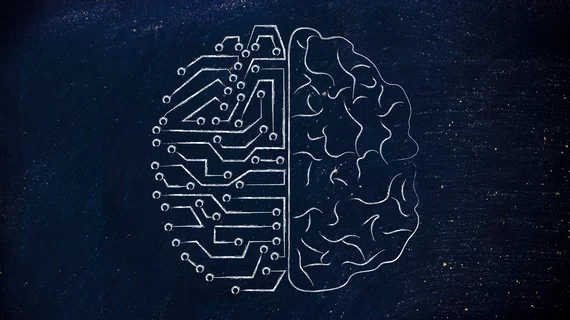Stanford researchers find AI may reduce gadolinium dose in MRI scans
Using artificial intelligence (AI), researchers from Stanford University in Stanford, California have reduced the amount of the contrast agent gadolinium that is left behind in a patient’s body after an MRI exam, according to a Radiological Society of North America (RSNA) press release published Nov. 26.
The research was presented Monday, Nov. 26 at the annual meeting of the RSNA in Chicago.
"There is concrete evidence that gadolinium deposits in the brain and body," study lead author Enhao Gong, PhD, researcher at Stanford, said in a prepared statement. "While the implications of this are unclear, mitigating potential patient risks while maximizing the clinical value of the MRI exams is imperative."
For the study, Gong and colleagues developed an AI-based deep learning algorithm trained with MR images from 200 patients who received contrast enhanced MRI exams.
Three sets of images were collected for each patient: pre-contrast scans (done prior to contrast administration and referred to as the zero-dose scans), low-dose scans (acquired after 10 percent of the standard gadolinium dose administration) and full-dose scans (acquired after 100 percent dose administration).
From analyzing these scans, the algorithm learned to differentiate the full-dose scans from the zero-dose and low-dose images. A final evaluation of the images was conducted by neuroradiologists to determine contrast enhancement and overall quality, according to the release.
The image quality between the low dose, AI algorithm enhanced MR images and the full-dose, contrast enhanced MR images was not significantly different, the researchers found. The results also showed the potential for creating the equivalent of full-dose, contrast enhanced MR images without the use of contrast agents.
"Low-dose gadolinium images yield significant untapped clinically useful information that is accessible now by using deep learning and AI," Gong said.
The researchers hope their findings can propel future research that will include the evaluation of the algorithm across other MRI scanners with various types of contrast agents.

